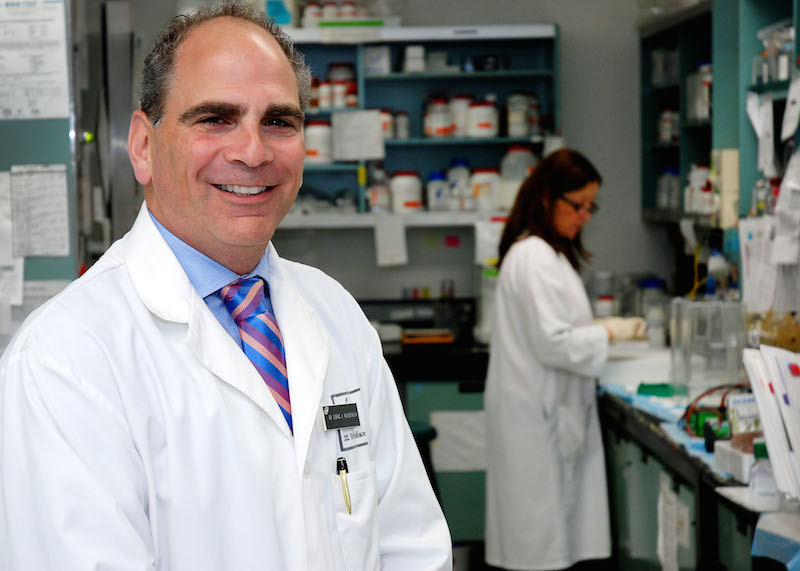Heart cell protein study provides clue to cancer’s “Achilles’ heel”
Unlike most human cells which rely on oxygen to survive, cancer cells can live without oxygen due to their unique ability to digest sugars. It takes powerful medication to kill off cancer cells, but that same therapy is toxic to heart cells and causes heart failure. Dr. Lorrie Kirshenbaum, principal investigator, Cardiac Gene Biology, Institute of Cardiovascular Sciences at St-Boniface Hospital Research Centre, professor of physiology and Canada Research Chair in Molecular Cardiology at the University of Manitoba, recently published evidence of the protein mechanism responsible for the side effect. “Knocking out” this protein (Bnip3), allows the cancer treatment to proceed – without damaging the heart.
Kirshenbaum’s latest study: PKD2 Switches Bnip3 from cell death to cell survival, was published today in the prestigious Journal of Cell Biology, receiving further attention in the journal’s “In Focus” section – highlighting the scientific importance of the study.
The findings report while Bnip3 promotes cardiac injury, a variant of this protein actually makes heart cells resistant to injury. And as Kirshenbaum’s lab was already studying cancer cells, they noticed the variant protein was found there as well. Unlike the heart, the cancer cell variant levels were very high – causing cancer cells to resist chemotherapy drugs.
“So the question was: ‘if we remove the protein variant, would it make the cancer therapy more effective in killing the cells?’ The answer was ‘yes,’” Kirshenbaum explains. “I am very excited about this work because it could very well be the Achilles’ heel for some forms of cancer.”
The next challenge is removing the variant protein from cancer cells without interfering with the variant in the heart. The key according to Kirshenbaum, is understanding what cells ‘eat’ for energy. “One difference between cancer and heart cells is what they use for food. While heart cells use fat, cancer cells use sugar,” he says.
Kirshenbaum recognized the presence of the variant protein in cancer cells was related to sugar processing,“if we can trick cancer cells into using fat instead of sugar we would remove the protein variant – leaving cancer cells unprotected, allowing the cancer treatment to work more effectively.”
The team of researchers – led by Kirshenbaum – is currently exploring how metabolism (the process by which the cells of our bodies digest sugars, fats and proteins for energy) can be used to “turn-off” the variant protein in cancer cells through new therapies. “We are very excited and optimistic this discovery will allow us to develop new therapies for certain kinds of cancers,” says Kirshenbaum.
The study was funded by the Canadian Institutes of Health Research (CIHR) and supported by St-Boniface Hospital Research and the University of Manitoba.
Research at the University of Manitoba is partially supported by funding from the Government of Canada Research Support Fund.







